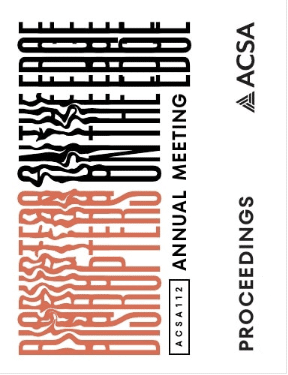Author(s): Kristin M. Barry
“Professional architectural education in the United States has changed very little since its inception, outside of the technological evolution of structures and computing. History/theory courses, in particular, often represent a specific pattern of information processing: memorize, regurgitate, repeat. This instruction method can alienate students for whom memorization of historical dates or images and/or efficient essay writing are a challenge. With more students arriving in higher education with a broader spectrum of learning needs, evolving teaching strategies to meet these needs is paramount to the continued success of students in architecture. This paper explores the benefits and constraints of using non- traditional grading practices, detailed rubrics, and integrated design projects in two architectural history/theory courses, focusing on student learning objectives and summative understanding of course material. Disrupting the stereotype of the “sage-on-the-stage” history/theory course, alternative teaching and grading that requires self-reflection and discourages adversarial discussion may help students better understand not only the content of history by its application as critical in the design process.”
https://doi.org/10.35483/ACSA.AM.112.54
Volume Editors
Germane Barnes & Blair Satterfield
ISBN
978-1-944214-45-6

 Study Architecture
Study Architecture  ProPEL
ProPEL 
